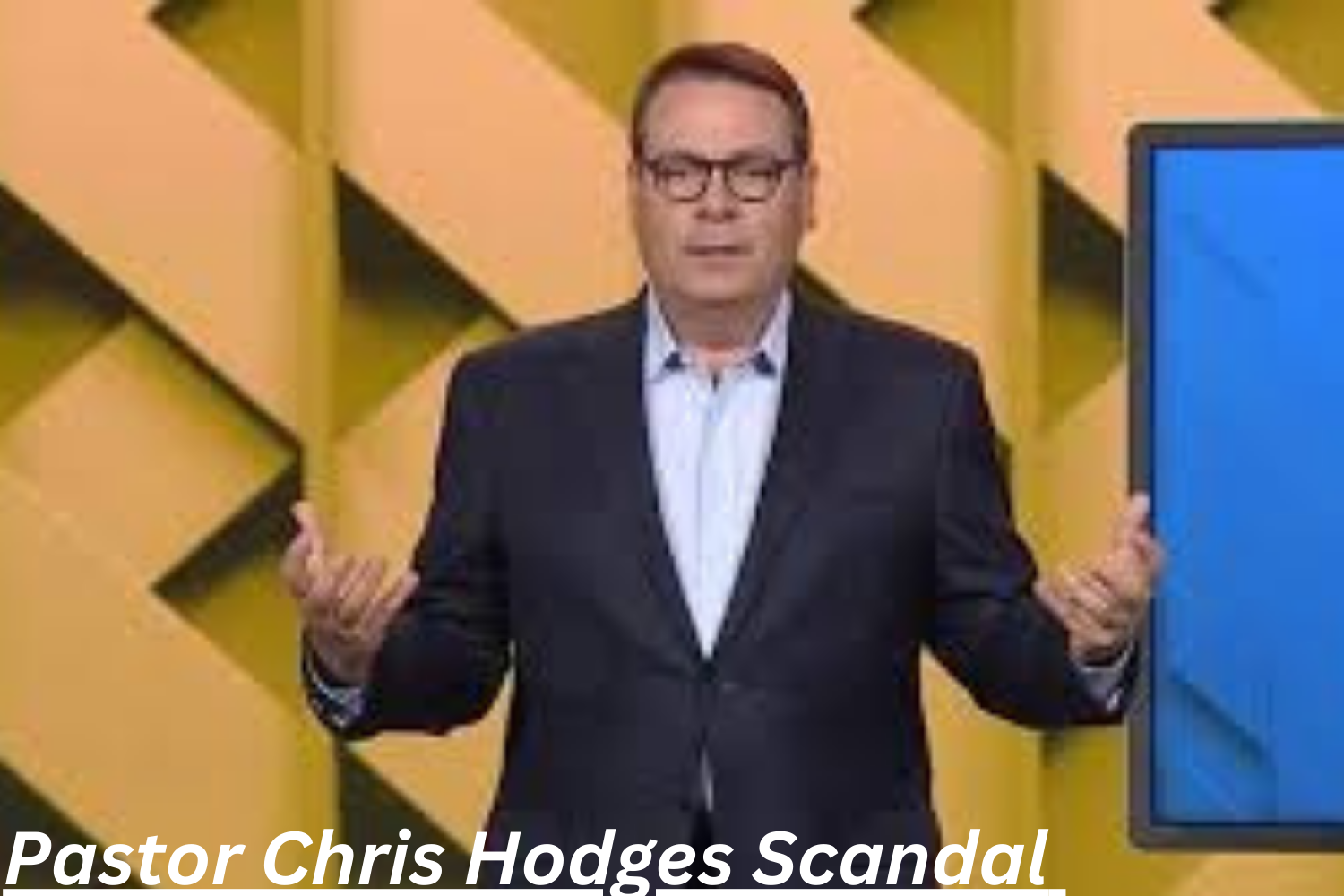Pastor Chris Hodges Scandal is a name that resonates with many. As the founder of Church of the Highlands, he has inspired countless individuals through his sermons and teachings. His ministry has reached thousands, fostering a community centered around faith and growth. However, like many public figures in the religious realm, his journey hasn’t been without controversy.
Recently, Pastor Hodges found himself at the center of an unsettling scandal that raised eyebrows across the nation. What began as whispers soon turned into headlines filled with serious allegations. The claims against him have sparked discussions regarding integrity within leadership roles in religious institutions.
As we delve deeper into this unfolding story, it’s essential to separate fact from fiction and understand what truly transpired within Pastor Hodges’ ministry and its implications for both him and his followers. Buckle up as we explore the complex web surrounding this controversial saga—Pastor Chris Hodges Scandal Explained: The Facts Behind the Controversy awaits you!
Overview of the controversy surrounding him
Pastor Chris Hodges, the founder of Church of the Highlands in Alabama, has found himself at the center of a significant controversy. This situation has raised eyebrows and sparked debates among churchgoers and religious communities alike.
The issues emerged following allegations related to financial misconduct and accusations about creating a toxic work environment. Many members who once admired his leadership began to question the integrity of his ministry.
Social media buzzed with opinions, as congregants expressed their feelings on both sides. Some rallied in support, while others voiced disappointment and concern over the direction of their church.
As news spread beyond local boundaries, it became clear that this scandal was not just an internal matter; it had national implications for faith-based organizations grappling with similar challenges. The unfolding events have turned many heads toward how churches manage accountability within their leadership structures.
Allegations against Pastor Chris Hodges and his response
Allegations against Pastor Chris Hodges have surfaced, sparking significant media attention. Critics claim that his leadership style has led to a culture of fear within the church community. Some former staff members describe experiences of intimidation and pressure.
Pastor Hodges responded publicly, stating that he was shocked by these claims. He emphasized his dedication to transparency and collaboration in ministry. In various interviews, he insisted that his intentions were never malicious.
He expressed regret if any actions had unintentionally caused distress among employees. Additionally, Hodges invited open dialogue with those raising concerns, hoping to address issues head-on. His commitment to the congregation remains strong as he navigates through this storm while trying to restore trust within the church family.
Details of the alleged financial misconduct
Allegations of financial misconduct against Pastor Chris Hodges have raised eyebrows within the church community. Reports suggest that there were questionable expenditures linked to his ministry’s funds.
Critics point to a lack of transparency regarding large donations and how they were allocated. Some former members claim that significant amounts went unaccounted for, raising concerns about potential mismanagement.
Additionally, claims surfaced about lavish spending on personal retreats and events under the guise of ministry-related activities. This has led many to question whether these expenditures served the church’s mission or catered more to personal interests.
The fallout from these allegations has prompted calls for an independent audit of the church’s finances. Many believe it is essential for restoring trust among congregants who feel blindsided by these revelations.
Accusations of a toxic work environment
Accusations of a toxic work environment have surfaced around Pastor Chris Hodges and his ministry. Former employees have shared unsettling experiences, highlighting a culture marked by fear and intimidation.
Reports suggest that dissenting voices were often silenced. Staff members felt pressured to conform to rigid expectations, which stifled creativity and personal expression. Many claimed they faced harsh criticism for minor mistakes.
The atmosphere was described as highly competitive, fostering an unhealthy sense of rivalry among team members. This led to burnout and disillusionment for several individuals who dedicated years to the church’s mission.
Additionally, some former staff indicated that mental health support was lacking within the organization. When seeking help or voicing concerns, many felt their issues were dismissed or trivialized.
These allegations raise significant questions about leadership accountability and employee welfare in such influential institutions.
Impact on the church and its members
The fallout from the Pastor Chris Hodges scandal has reverberated throughout his church community. Members have expressed confusion and disappointment, struggling to reconcile their faith with the allegations.
Attendance at services saw a noticeable dip as families weighed their commitment against the emerging controversies. Longtime supporters found themselves questioning not only Hodges’ leadership but also the integrity of the institution itself.
Small groups once filled with fellowship became spaces for uncertainty and debate. Conversations shifted from spiritual growth to concerns over transparency and accountability within church leadership.
For many, this was more than just a scandal; it felt like a crisis of faith. The emotional toll on congregants cannot be understated as they navigate their love for their community amidst turbulence. Building trust again will take time and effort, leaving members yearning for healing amid division.
Reactions from other religious leaders and organizations
The controversy surrounding Pastor Chris Hodges has drawn varied reactions from religious leaders and organizations across the spectrum. Many have expressed concern over the allegations, emphasizing accountability in ministry.
Notably, some prominent pastors voiced their support for Hodges, urging unity within the church community. They highlighted that every leader faces challenges and deserves grace during difficult times.
Conversely, several faith-based organizations issued statements calling for transparency and ethical practices within all ministries. These leaders advocate for a re-evaluation of how churches handle finances and leadership dynamics to prevent future misconduct.
Social media also became a platform where both supporters and critics shared their views. The discourse sparked significant dialogue about leadership integrity in modern churches.
As these discussions continue, it’s clear that this scandal has resonated deeply with many beyond just one congregation or denomination.
Resolutions and changes made by the church
In the wake of the scandal, Church of the Highlands took significant steps to address concerns. Leadership recognized that transparency was key. They committed to open financial audits and regular disclosures.
Additionally, they implemented new policies aimed at improving workplace culture. This included mandatory training sessions focused on communication and conflict resolution. The goal was to foster a healthier environment for staff.
The church also established an independent oversight committee. Comprised of both members and leaders outside the organization, this group monitors operations and addresses grievances more effectively.
Community engagement increased with forums allowing congregants to voice their opinions directly. These changes reflect a commitment not just to recovery but also growth in trust between leadership and members.
Lessons learned from this scandal
The scandal surrounding Pastor Chris Hodges serves as a profound reminder of accountability in leadership. It highlights the critical need for transparency, especially within faith communities that rely on trust.
Church leaders must recognize their influence and the expectations that come with it. Ethical practices should be at the forefront of any ministry’s operations.
Additionally, fostering an open dialogue about workplace culture is essential. A healthy environment encourages feedback and prevents issues from festering beneath the surface.
Moreover, congregations can learn to advocate for themselves by understanding their rights as members. Awareness empowers individuals to speak up when they notice red flags.
This situation underscores the importance of support systems within religious organizations. Mentorship and oversight can help maintain integrity and prevent future controversies while promoting spiritual growth among all members involved.
Conclusion: The future of Pastor
The future of Pastor Chris Hodges remains uncertain as the dust begins to settle from the recent scandal. With a ministry that has reached thousands, many are watching closely how he will navigate these turbulent waters. The church community is resilient but divided; some members continue to support him, while others seek accountability and reform.
Hodges’ next steps will be crucial in rebuilding trust. Open communication with congregants could help mend relationships frayed by controversy. A commitment to transparency regarding financial practices may also play a significant role in restoring faith within his congregation.
As religious leaders keep an eye on this situation, they might find lessons applicable to their own ministries. It’s clear that challenges like these can serve as catalysts for growth and change if handled thoughtfully.
Pastor Chris Hodges stands at a crossroads where decisions made today could shape not only his future but also the direction of his ministry moving forward. How he addresses this scandal may define both his legacy and the health of the church he leads for years to come.



